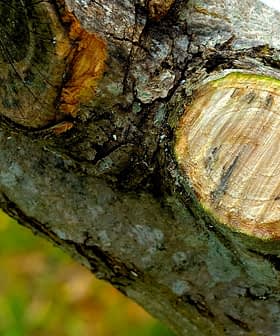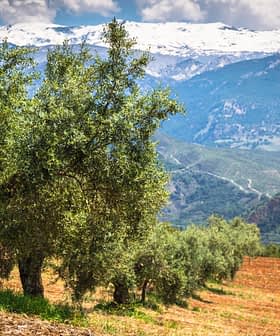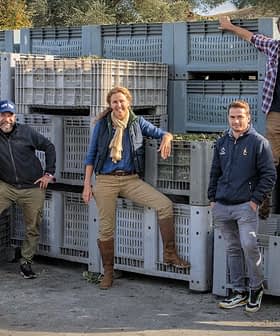Italian Scientist Awarded Spoof Prize for His Research On Pizza
Silvao Gallus found that consuming pizza made with traditional ingredients protects against some chronic diseases.
 Adding extra virgin olive oil to traditional Neopolitan pizza. Photo courtesy of Enzo Coccia
Adding extra virgin olive oil to traditional Neopolitan pizza. Photo courtesy of Enzo CocciaItalian scientist Silvao Gallus won the 2019 Ig Nobel Prize for Medicine for his research on the health benefits of pizza, specifically how it can protect against chronic diseases when made with Mediterranean ingredients. Gallus, affiliated with the Mario Negri Institute and the University of Maastricht, concluded that pizza made according to the Mediterranean diet can help prevent digestive tract cancers and heart attacks.
Italian scientist Silvao Gallus was recently awarded the satirical 2019 “Ig Nobel Prize” for Medicine for his research into the health benefits of pizza.
From this research, Gallus concluded that eating pizza made with ingredients from the Mediterranean diet can protect from some chronic diseases. Gallus, who is affiliated with the Mario Negri Institute in Milan and the University of Maastricht, wore a pizza emblazoned t‑shirt to the awards ceremony at Harvard University’s Sanders Theater.
We found that pizza consumption in Italy was protective for many chronic diseases that are known to be influenced by diet: digestive tract cancers and infarction.
The Ig Nobel Prize, which have been running for 29 years, is a joint initiative between the Annals of Improbable Research and Harvard University. All prizes are awarded for real achievements and scientific research which, “makes people laugh and then makes them think.”

Improbable Research
Gallus was delighted to receive his certificate, trophy and $10 trillion Zimbabwean dollars (which is no longer in use) from a genuine Nobel Laureate.
See Also:Health News“I am honored to have obtained this achievement for a bizarre but important award,” he told a packed audience. “A good pizza comprises all the virtues of the Mediterranean Diet.”
Before his acceptance speech was, in customary fashion, cut short by a young girl wandering onto the stage complaining, “please stop. I’m bored.” He managed to add, “we found that pizza consumption in Italy was protective for many chronic diseases that are known to be influenced by diet: digestive tract cancers and infarction.”
Gallus, who heads the laboratory of lifestyle epidemiology at the Istituto di Ricerche Farmacologiche Mario Negri, has led three studies on the health benefits of pizza, which led him to conclude that the iconic Italian dish warded off heart attacks and some forms of cancer.
Gallus was adamant that the ingredients needed to be Mediterranean and not as he termed, “made according to foreign interpretations.”
Enzo Coccia, a Neapolitan master pizza maker who runs a renowned pizza academy and a couple of restaurants in Naples told Olive Oil Times he was delighted to hear of Gallus’ Ig award.
“It is good news for Italian pizzaioli because it could be a pulse to spread some typologies of pizzas made with these toppings to propose to customers,” he said.
Coccia also said that although he had not met Gallus in person he was fully aware of the scientist’s research into the health benefits of pizza and was looking forward to being introduced to him.
Coccia paid tribute to Gallus for continuing the work of Ancel Keys who first defined the Mediterranean diet and remained a strong advocate of it until his death at the age of 100 in 2004.
“Silvao Gallus has continued the work of Ancel Keys on the Mediterranean diet, because in 2006 in research in the European Journal of Cancer Prevention, he wrote about the benefits of lycopene in tomato, antioxidants in extra virgin olive oil, mineral salts and vitamins in some vegetables.”
In 1958, Keys launched the pioneering “Seven Countries Study” which was one of the first to attribute the Mediterranean diet with improving cardiovascular health.
Coccia went on to discuss the important role of olive oil in pizza making saying, “Extra virgin olive oil is fundamental because it represents a link between the ingredients that make the pizza. If I make a dish of dough (focaccia) and put in it a light fruity oil with a delicate scent and add oregano and garlic, I have created a masterpiece.”
In 2017, Neapolitan pizza twirling made headlines when it was UNESCO World Heritage status and was added to the organization’s Lists of Intangible Cultural Heritage.
In 2010, Naples Pizza was approved for a “traditional specialty guaranteed” label recognizing it as a slice of Europe’s food heritage.









